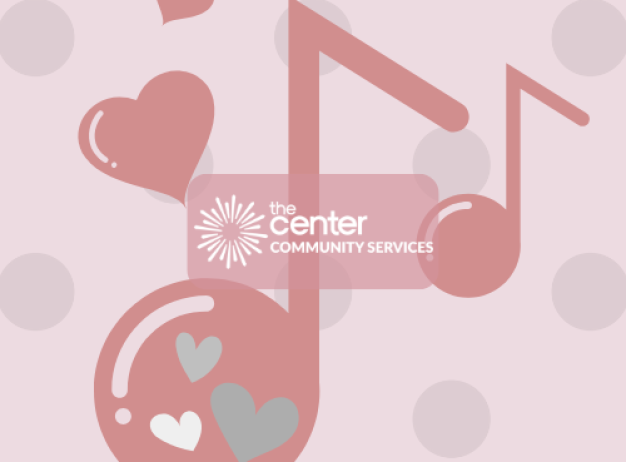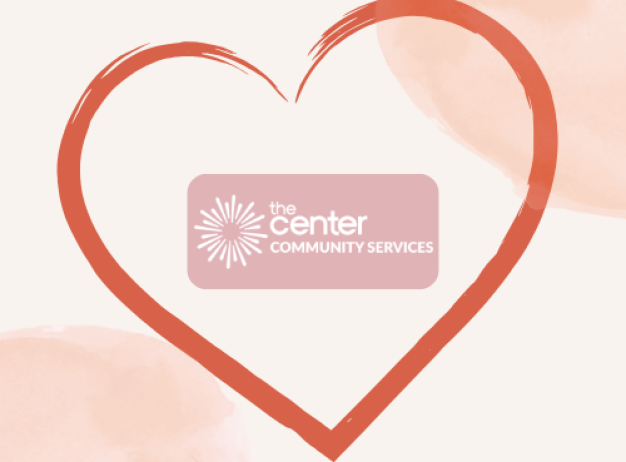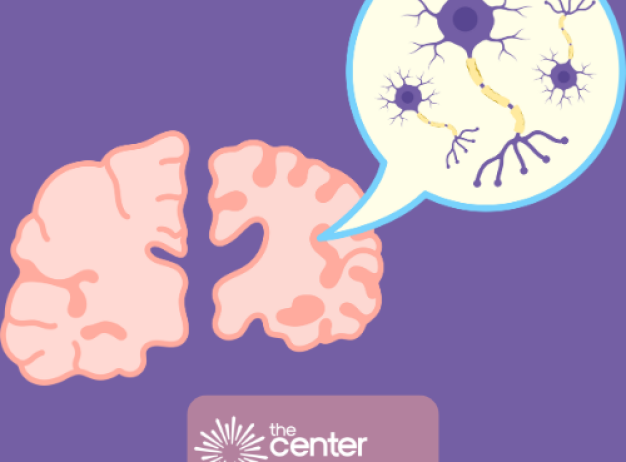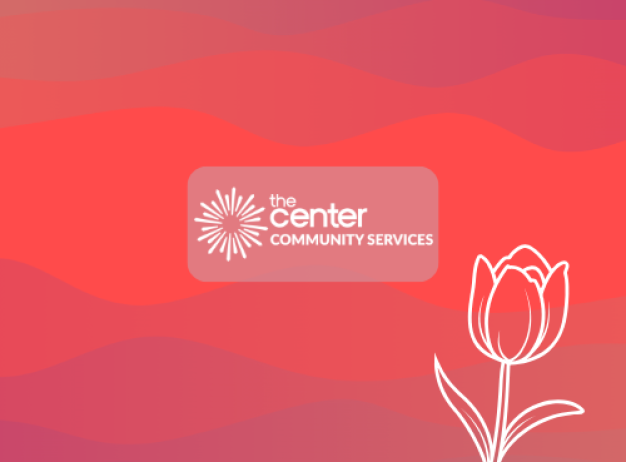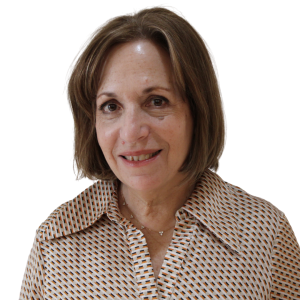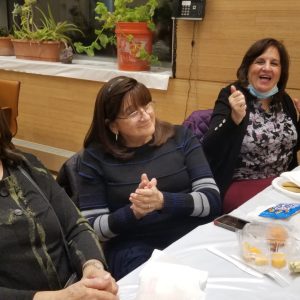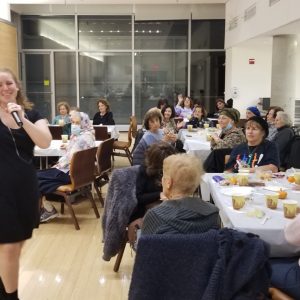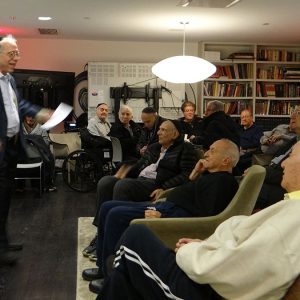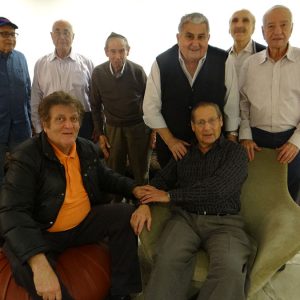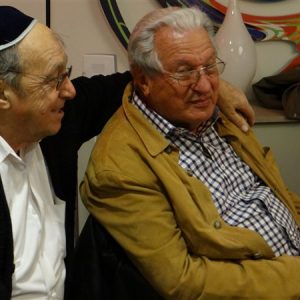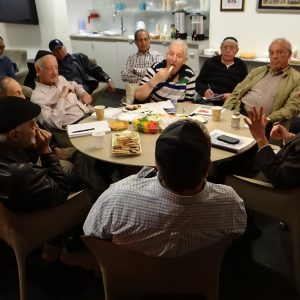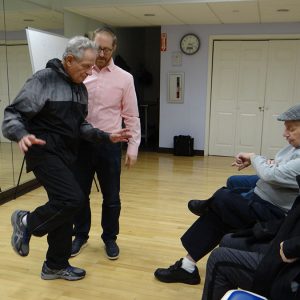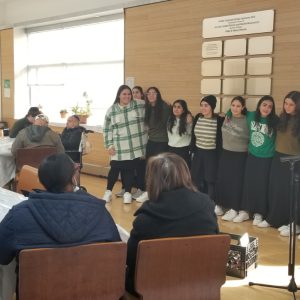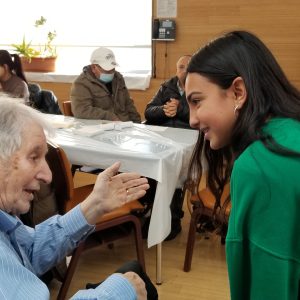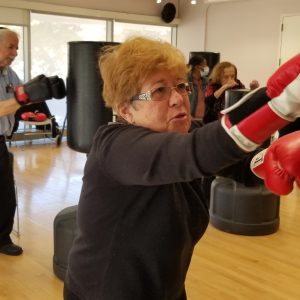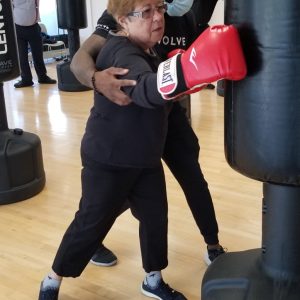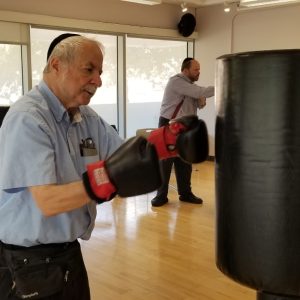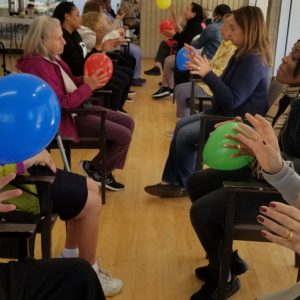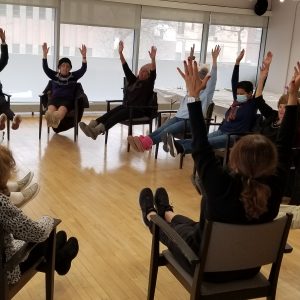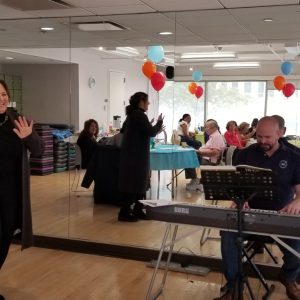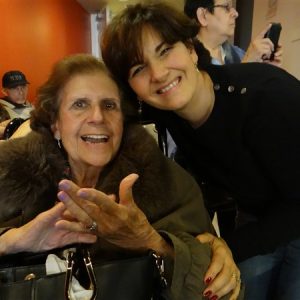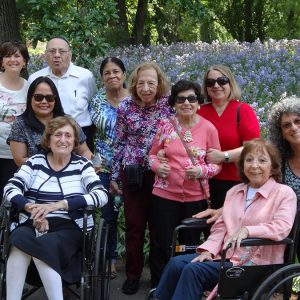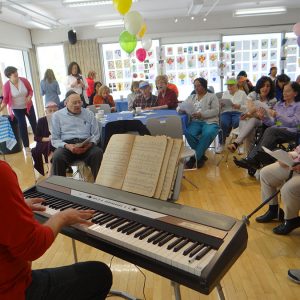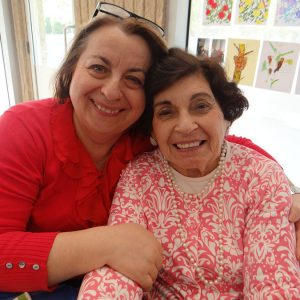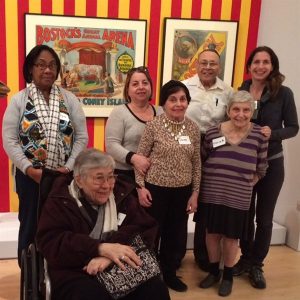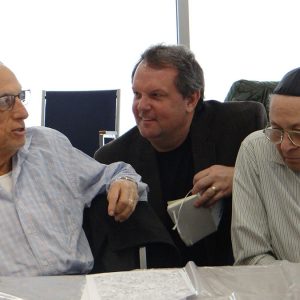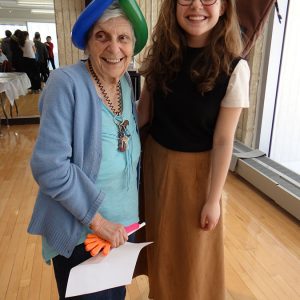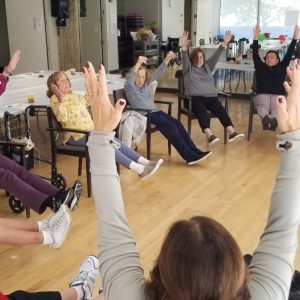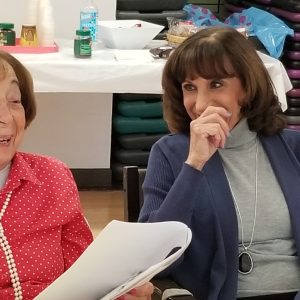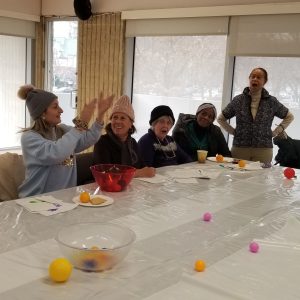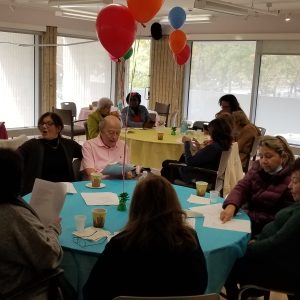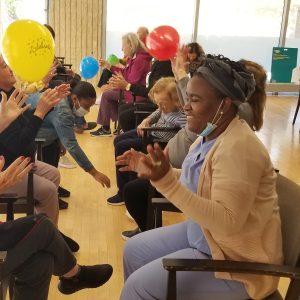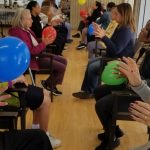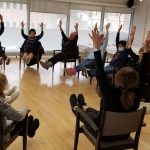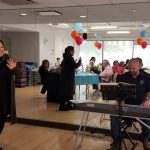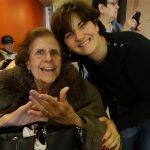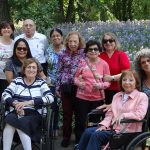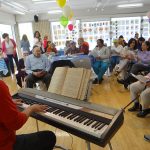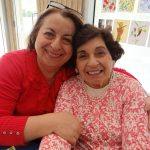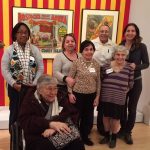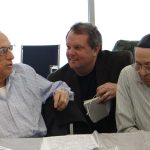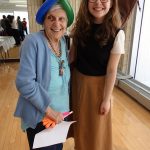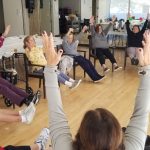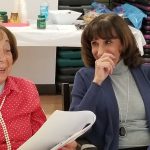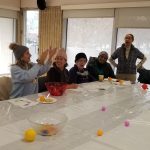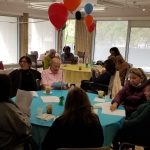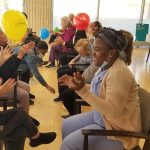“My mother and I appreciate your Brain Works Program… Here at the SCC, she has the opportunity to feel competent and young again…The warmth and care she receives fills a tremendous need and above all else is a wonderful chesed.”
Community Services
Click here to return to the main Arts & Culture page.
We are standing by your side.
The Center is here to respond, support, and provide for the unique needs of our community. Our Community Services department has touched the lives of our members, at every age and at every stage, through our carefully crafted programs and services.
Some programs we provide are:
- Health and Wellness Seminars
- Workshop Events
- Special Events (holidays, celebrations, and more)
- Social Clubs
- Support Groups
- Brain Works
Our cutting-edge Brain Works program creates a safe and familiar space where people with early-stage memory loss learn how to enhance focus and concentration in an upbeat, recreational, and social setting. We also offer confidential short-term counseling and referrals to specialty services.
Transportation to and from the Center is available for seniors and people with disabilities.
Altoon Tunie Sutton Endowment Fund
Providing support for people with dementia and Alzheimer’s Disease
Alzheimer’s disease, memory loss and other forms of dementia are increasing and affecting many members of our community. The Center has various programs that can provide help with this heartbreaking illness, including Brain Works, an on-going social programs for those affected by dementia. Lead facilitator, Tally Grazi, creates a nurturing atmosphere filled with upbeat group activities that engage each participant at his/her best capability. We offer caregivers support groups and educational programs with experts who provide invaluable information for managing the difficult financial, emotional and behavioral challenges of this illness.
You can help the Center to continue and expand our invaluable and much needed services. Donations may be made to the Altoon Tunie Sutton Endowment Fund in the name of loved ones you wish to honor or those whose legacy you wish to remember.
The Altoon Tunie Sutton Endowment Fund was established by Marilyn Chira to honor the legacy of her beloved sister, Altoon Tunie Sutton, a community member who consistently gave to those in need and helped create the first caregivers support group at the SCC. This fund ensures in perpetuity the SCC’s commitment to provide supportive services for this population.
The more contributions received, the larger the endowment and the greater the proportion of funds available to meet the increasing demand for services.
Tax deductible contributions are payable to: SCC – Altoon Tunie Sutton Endowment Fund.
For more information, please contact Linda Eber at 718-954-3154 or email her at Linda[at]SCCLive.org
Events
Welcome to The Center’s “Living with Parkinson’s” page.
Here, you can find information, resources, and programs to better the lives of those living with Parkinson’s.
If you have any questions, please contact Aldo Oranvil at (718) 258-3300 or Aldo[at]evolveny.com – thank you!
Rock Steady Boxing Virtual & In-Person Class
Fight Back Against Parkinson’s!
For Men & Women with Parkinson’s Disease
Taught by Evolve Physical Therapy certified trainers
On Zoom: Tuesdays, 12:30 PM and Thursdays, 11:30 AM
In-Person: Tuesdays, 11 AM
Click here to watch pervious Rock Steady Boxing Classes!
Meeting ID: 833 6600 6163
Password: 622606
![]()
Does someone you know suffer from speech & communication challenges due to Parkinson’s Disease?
TTI’s Clinic is offering ONLINE sessions for Speech Therapy.
Click here to view the full flyer and learn more!
Visit the Speech Clinic website by clicking here
or call Stacey Emmer at (718) 938-5412
Healing Music for Parkinson’s
Music is a great way to maintain and develop vocalizing abilities.
Before the program, please gather a common household object to use as a small percussion instrument for creating rhythms, such as an upside down bucket with a stick; 2 wooden or metal spoons; a set of keys; beans or rice in a small plastic container or empty water bottle, or your hands for clapping!
with Board Certified Music Therapists
Twice a month, every other Thursday at 12 noon.
Meeting ID: 833 6600 6163
Password: 622606
![]()
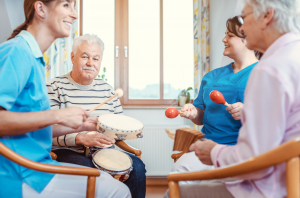
What is Parkinson’s disease?
Parkinson’s disease (PD) is a neurodegenerative, progressive disorder that affects predominately dopamine-producing neurons in a specific area of the brain called substantia nigra.
How common is PD?
Nearly one million Americans and 10 million people worldwide live with PD, with approximately 60,000 people in the U.S. diagnosed with PD each year. It is the second most common neurodegenerative condition after Alzheimer’s. The number of people with
PD will increase substantially in the next 20 years due to the aging of the population.
What are the symptoms of PD?
Symptoms generally develop slowly over years. The progression is often different from one person to another. People with PD may experience:
- Tremor, mainly at rest and described as pill
rolling tremor in hands - Slowness of movements (bradykinesia)
- Limb rigidity
- Gait and balance problems
In addition to movement-related (“motor”) symptoms, Parkinson’s symptoms may be unrelated to movement (“non-motor”), such as apathy, depression, constipation, sleep behavior disorders, loss of sense of smell and cognitive impairment.
Who does PD affect?
Getting older is the biggest factor for PD with most people diagnosed in their 60s. In rare cases, some people will develop PD before age 50, known as young-onset PD. Men are 1.5 times more likely to have PD than women.
Directly inheriting the disease is quite rare. Only about 10 to 15 percent of all cases of Parkinson’s are thought to be genetic forms of the disease. In the other
85 to 90 percent of cases, the cause is unknown.
How is PD diagnosed?
There is no diagnostic test for PD. Physicians rely on a combination of clinical exams and tests evaluating symptoms. Often, a Parkinson’s diagnosis is first made by a primary care physician. Many people seek an additional opinion from a movement disorder specialist, a neurologist with experience and specific training in the assessment and treatment of PD.
How is Parkinson’s treated?
It is possible to have a good to great quality of life with PD. Treatment for each person with Parkinson’s is based on his or her symptoms, and may include medication and, later, surgical therapy. Other treatments include lifestyle modifications, like getting more rest and exercise. There are many medications available to treat Parkinson’s symptoms, although none yet that reverse the effects of the disease.
About the Parkinson’s Foundation
The Parkinson’s Foundation makes life better for people with Parkinson’s disease by improving care and advancing research toward a cure. In everything we do, we build on the energy, experience and passion of our global Parkinson’s community.
For more resources, visit the Parkinson’s Foundation by clicking here.
New Beginnings: Social Club for Widows
Join upbeat monthly gatherings to socialize with friends, hear presentations, and participate in discussions. Enjoy a light dinner while meeting with old friends and new.
Get involved & let us know your ideas for future programs!
If you’re interested in joining or have any questions, please contact:
Aimee Mishaan at 718-954-3157 or email her at [email protected]
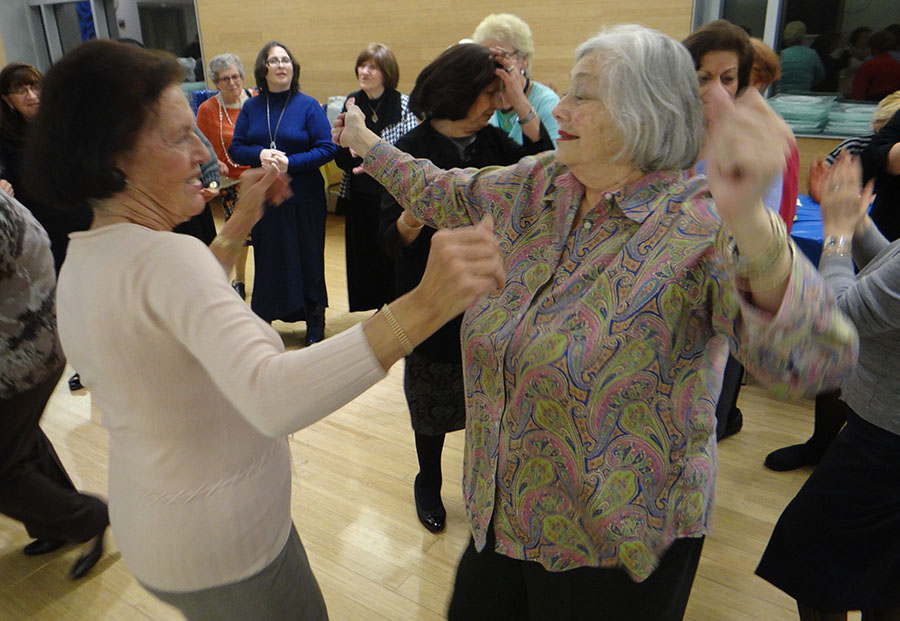
Men’s Club
Socialize with old friends and new!
Join discussions, seminars, movies, and more!
If you’re interested in joining or have any questions, please contact:
Ashley Rosen at 718-954-3128 or email her at [email protected]
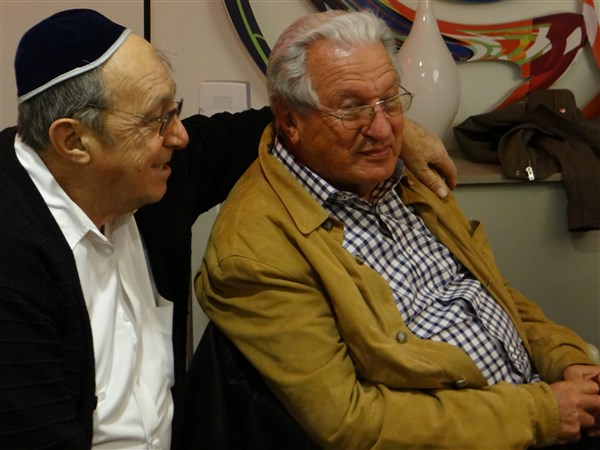
Support Groups
Programs require a minimum number of participants.
Please call to RSVP and confirm program dates and times which may be subject to change.
Programs require a minimum number of participants. Please call to RSVP and confirm program dates and times which may be subject to change.
Caregiver Support Group
Intake interview is required before attending.
Share experiences and trade tips for managing the emotional and physical demands of caring for an ill loved one. Discuss meeting the challenges while nourishing yourself and preserving your own sense of wellness. Please call Linda Eber for more info.
Counseling For People Coping With Serious Illness Or Loss
Provided by the Ricky Haddad Memorial Foundation
The Ricky Haddad Memorial Foundation, in conjunction with the SCC Social Services Department, helps individuals afflicted with a serious illness, as well as their families, by providing confidential counseling services. After an initial session at the Center at no charge, you may be referred for up to 10 individual, couple or family counseling sessions (for a small co-payment). In the event a family has lost a loved one, we will offer a range of bereavement services.
Originally established by Sarah Haddad Cheney and her family in 1999 on the 20th Anniversary of the yahrtzeit of Ricky Haddad, it is our hope that this support will reassure and comfort individuals and their families during their difficult time. Please contact Sarah Cheney, Adelaide Khezrie, or Amy Sasson, or call Linda Eber, L.C.S.W. at 718-954-3154 at the SCC to make a confidential, initial appointment.
Brain Works: For People with Early Stage Memory Loss
Tuesdays
1:00-3:00 PM
Transportation may be available upon request. An intake interview is required prior to attending the program. Please call Linda Eber at 718-954-3154 to schedule an appt. This program is made possible in part through the support of the Altoon Tunie Sutton Endowment Fund.
Brain Works is a unique program designed to meet the needs of people with early stage memory loss to enhance focus and concentration while maintaining an active, upbeat recreational and social setting. Our lead facilitator, Tally Grazi, creates a nurturing environment that engages participants in mentally stimulating exercises and fun group activities such as word games and brain teasers, table games, singing, dancing, arts & crafts, and exercise.
Door-to-Door Transportation, for your Convenience
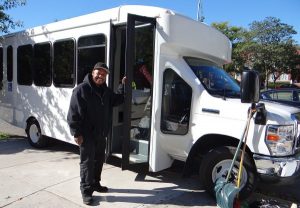 |
As available, the Center’s handicapped accessible mini-bus may pick up older adults to bring them to and from Center programs and their homes. Our route is between Foster Ave and Ave Z, and between McDonald Ave and Ocean Ave.
For schedule information and to make a reservation on a first-come first served basics, please call in advance 718-627-4300.
Please click below to fill out the bus application.


